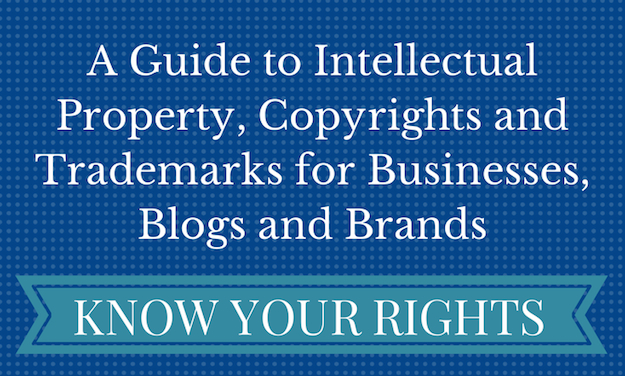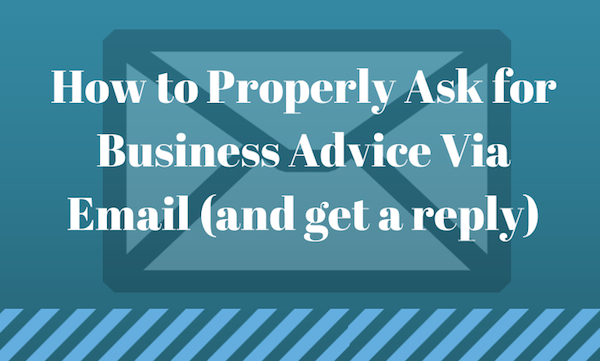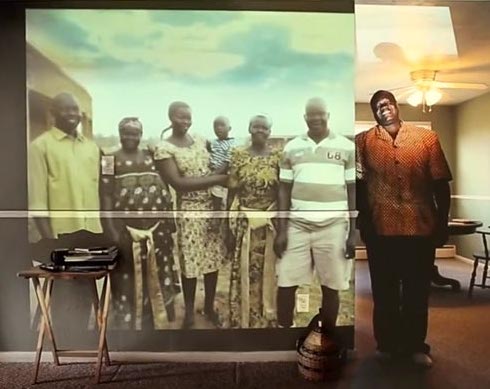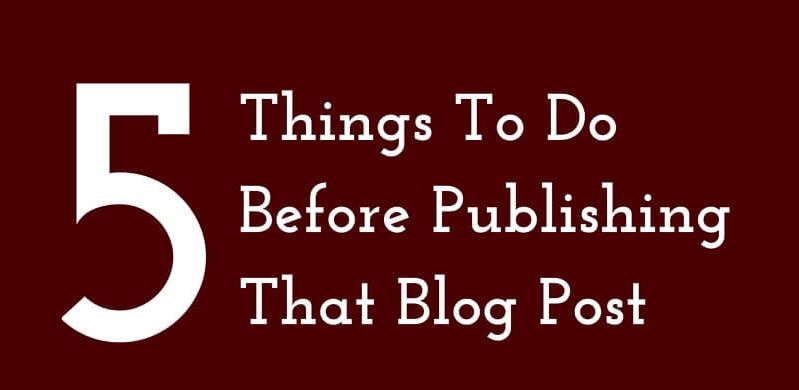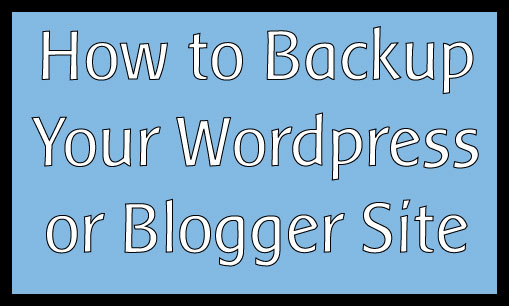Hashtags as Intellectual Property: How to Own and Trademark Them
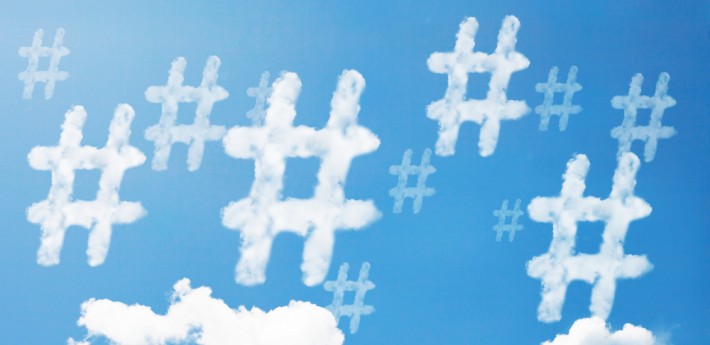
Luvvie’s note: Twitter is a goldmine of brilliance, and all day people are creating dopeness, and oftentimes, they’re in the form of hashtags that drive important conversation (see: #OscarsSoWhite, created by @ReignofApril). Or they have us cackling like drunk seals (see: #PaulasBestDishes).
It is changing the way we look at ideas and legal ownership of bite-sized intellectual property (IP). As a creative, I know the significance of my ideas, and I am owner of multiple federally-registered trademarks. I wrote a Guide on Intellectual Property for Blogs, Businesses and Brands, because I want folks to know their rights.
Hashtags are a new frontier, though. So I asked my IP attorney Patrice Perkins of Creative Genius Law to be a guest on Awesomely Techie to talk about hashtags and how to protect them once we create them. And she accepted. Below is the invaluable piece she is passing on.
Hashtags as Intellectual Property: How to Own and Claim Them
Can you even own a hashtag?
As an attorney for creators, I want nothing more for you than to value your creativity and protect your ownership of it. I want you to build empires that’ll give you the freedom to travel the world, take time off when you want and build a legacy that you’ll be able to pass on to your families. I also want this dream to be able to fund your next dream (because we both know you’ve got some other tricks up your sleeve).
The truth is you don’t know what you don’t know. That’s not meant to point fingers at anyone or to place blame. It’s true. NONE of us know what we don’t know. So, when my dear client Luvvie asked me to write this post for you, I was thrilled. We both want you to recognize, value and own your intellectual property. We decided to start with talking about a form of the most overlooked and devalued IP that’s very popular today…
The hashtag

Hashtags started as a way to get attention around a single topic and make them easily searchable. But we all know the hashtag has evolved. It now ignites entire movements. The power of hashtags has been recognized by both indie creators and in corporate boardrooms. But, at the same time we’ve recognized the power in the hashtag for marketing and branding initiatives, we’ve completely overlooked it’s power as our own intellectual property.
Intellectual property is a creation of your mind. They are your ideas. Your intellectual property is also an intangible asset that can build in value over time. It can be leased or sold just like your home. But before you can make any money from your intellectual property, you’ve got to claim your ownership of it.
Treating your hashtag as a trademark
In order to stake your claim to a hashtag, you have to treat it as a trademark. There is no legal protection for short phrases unless they are trademarks and in some cases if they originated from really famous people. In that situation, the legal protection comes from the association with the famous person’s name.
A trademark is a name, logo, slogan, tagline, color or sound that identifies the source of a product or service. In other words, when people see it, they know it comes from you and is related to something you sell or do. We see the “swoosh” we know to expect a Nike product. We see a “Tiffany Blue” box and we know the product probably comes from Tiffany’s. We see the “three stripes” on a pair of sneakers and we know it’s Adidas.
A hashtag can be positioned in the same way. If you create a hashtag and can associate it with your specific product or service, then you’re treating it as a trademark. I’ll give an example. On my blog, I have a column called #GeniusLife where I interview peeps who I think are creative geniuses. I’m associating it with a service, and that service is that I’m publishing interviews and stories featuring inspirational people in business. Now, when I turn to Twitter or Instagram and tweet “Check out my interview with so-and-so #GeniusLife”, I’m simply sharing my trademark on another platform.
Now, what if I didn’t publish the column and only used the hashtag when I tweeted things like:
Met with a new client today who’s working on an epic project. #GeniusLife
Can’t wake to make a major announcement. #GeniusLife
In these tweets, I’m simply using the hashtag as a catch phrase. It’s not speaking to the product or service that I’m associating with it so it’s legally not a trademark.
Even when you start using your hashtag as a trademark you have to continue to consistently use it in that way in order to protect your ownership of it.

Here are two takeaways for you:
- Determine if you can associate your hashtag with a product or service that you offer.
- Determine how to position it on your website and in social media in association with that product or service.
Let’s talk common law trademark ownership
Now that we’re clear on how to treat your hashtag as a trademark let’s talk about common law trademark ownership. Assuming no one else was using the trademark first, you’re considered the common law owner of it from the day that you started using it publicly and continuously.
Being a common law owner of the trademark simply means that you have not registered it the United States Patent and Trademark Office (USPTO). The advantage is that you can stake your claim to a trademark even before you’ve formally registered it. It also means that you have exclusive rights to use the trademark (as associated with your product or service). But, there are serious limitations of common law ownership that you should be aware of:
- Watch out for other common law owners. First off, just like I’m telling you that you don’t have to register with the USPTO to claim your ownership in a trademark, this goes for other peeps as well. Just because someone hasn’t registered their trademark doesn’t mean that they don’t have legitimate rights in it.
- Your ownership of the common law trademark is limited to your geographic area. I’ll repeat, your ownership of the common law trademark is limited to your geographic area. If you are blogging or doing business online, that doesn’t mean that the whole.wide.world. is your geographic area. Your geographic area is going to be either where your business is registered or the state where you’re primarily conducting business activities. This means, other peeps outside of your state (and in some cases even outside of your county) can use the same or similar trademark because your ownership is frozen to where you are. See the problem there?
- Enforcement issues. Let’s say someone beat you to the punch and registered with the USPTO for the federal ownership of your common law trademark. Would you be able to go after them? Yes, you can oppose their trademark and in some instances you may even be able to get it cancelled. But, it’s always a more difficult battle and much more expensive to try to deal with this on the back end.

That brings me to… what are the benefits of a federal trademark registration with the USPTO?
- Exclusive ownership across the U.S. and easier enforcement. The greatest benefit of owning a federal trademark is that you will own your hashtag across the U.S. It’s also easier to enforce your rights once you are registered. Registration with the USPTO means that you have a leg to stand on if you need to shut down copycats — you’ll be able to get them shut down by filing take down notices with the social media websites and through other strategies.
- Asset building. A lot of times peeps talk about owning and protecting the intellectual property without addressing the money side of it. Remember, that hashtag will also become a part of your company’s asset portfolio:
– If you’re bringing investors to the table, owning your IP makes the investment opportunity more attractive to them and adds value to the offer.
– You can license your IP for use by other companies or individuals.
– You can decide to sell the IP later on (let’s say you’ve decided you no longer want to own the hashtag-trademark, and you want to raise money for a new venture… yes, you can sell it. That’s the beauty in stacking up your assets).
– It adds value to your business if you decide to sell it down the road.
- Incontestable status. After five years of registration (on the principal trademark register) your trademark becomes incontestable. Remember I mentioned earlier that other peeps can try to get your trademark cancelled? Once it’s incontestable, the fact that you’ve registered is proof in itself that you are the legit owner of it and no one can challenge it. There are exceptions to every rule, but if you’ve continued to use it regularly and didn’t start out infringing on someone else’s trademark then you won’t have anything to worry about.
- Long term ownership. Lastly, a federal trademark registration is renewed every ten years — that’s quite a bit of time to have exclusive ownership to a hashtag-trademark. Isn’t it?
Before we wrap up this section, I want to add one thing because I know it’s a common misbelief.
There is no such thing as a blanket trademark.

What do I mean by that? You own a trademark as it pertains to the thing that you do. You’ll register it in a specific category. Let’s go back to my #GeniusLife example. I would own that hashtag-trademark as it pertains to publishing interviews of inspirational business peeps. But what if someone wanted to set up an interior decorating business called #GeniusLife? Could they? Possibly. It depends on whether people could reasonably think her interior decorating business was also owned by me — this is why an attorney is incredibly valuable to the trademark process. There are so many nuances in this area of law that no one is going to learn it all from a Google search.
The problem with waiting too long.
The last thing I wanted to touch on is why you must identify, claim and register your hashtag-trademark as soon as you determine that you’re committed to it.
There’s one huge reason. A trademark must be distinctive.
There is absolutely no legal protection for generic terms. Let’s say you’ve come up with a hashtag and never used or protected it as a trademark. Years later, it becomes incredibly popular. So popular that large corporations and everyday peeps are using it all over the place. I explained earlier that trademarks are intended to be “source identifiers” — they identify the source of a product or service (i.e. the golden arches identify McDonalds, the apple identifies Apple). Well, once this hashtag loses it’s association with you, then it’s gone generic. At that point, you’ve probably lost your window of opportunity to claim it as a trademark because a trademark can’t be distinctive and generic all at once.
Now that you know you can legit own your hashtag as long as you treat as a trademark…
Now that you understand the difference between a common law trademark and a federal trademark…
Now that you know the implications of waiting too long…
I have one final PSA…
Don’t wait for the world to show you your own value…
Don’t wait on your social media peeps to tell you your ish is hot…
Don’t wait on a major corporation to snatch your creativity from under you and start making money from it…
All because you didn’t believe in what you were putting out there enough to invest in it.

There is potentially real financial value in being creative. But, you’ve got to start tending to your intellectual property just like you do the rest of your business. And no. I’m not going to sugar coat and tell you that you can or should do this on your own. I’ve cleaned up too many “messes” from folks who DIYed (do-it-yourself). But, now you know the things you should be thinking about and where to start.
Let’s carry on with the business of owning our ish.
If you want to learn more on protecting and owning your IP, I have a free masterclass, Protect Your Brand in Cyberspace.
About the Contributor
Patrice N. Perkins is the principal attorney of Creative Genius Law®, a business and intellectual property law firm and strategic legal partner for creative entrepreneurs, innovators and change agents. Patrice has been recognized by the American Bar Association as a “Legal Rebel” for being an innovator in her space. Patrice frequently facilitates workshops and presents at conferences including Chicago Creative Expo, Lake FX, Chicago Artists Coalition, Alt Design Summit, BlogHer, and Eat Write Retreat, to name a few. She is also the creator of The Quit Kit, a strategic planning system to help creative entrepreneurs ditch their 9 to 5 for full-time entrepreneurship and Creative Genius Society where she blogs on business and legal topics regularly. Follow her on Twitter: @creative_esq.
If you liked this post an found value in it, pin this graphic to Pinterest! Also, share this post across your social media.

